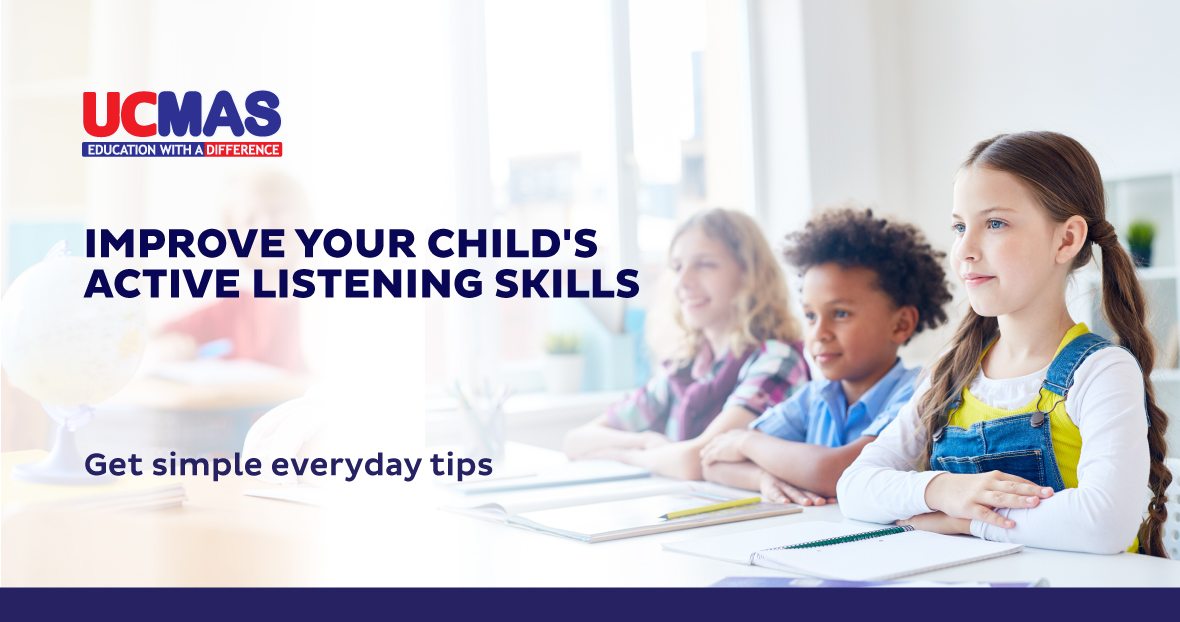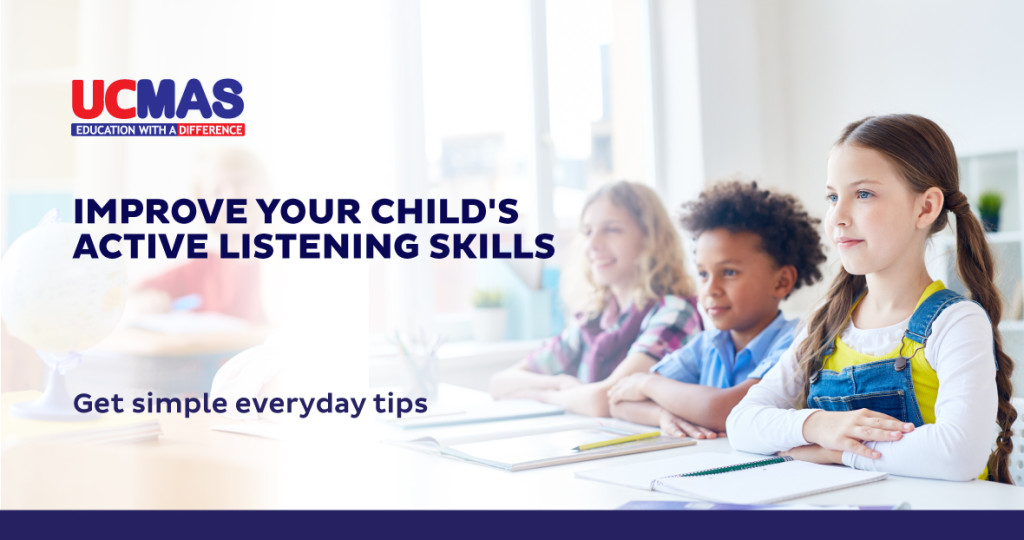 Paramount reason why most of the children fail to perform well in academics and communicate effectively is the lack of active listening skills. Active listening means giving complete attention to the speaker to understand the message and prevent the breakdown of communication.
Paramount reason why most of the children fail to perform well in academics and communicate effectively is the lack of active listening skills. Active listening means giving complete attention to the speaker to understand the message and prevent the breakdown of communication.
Children who are active listeners perform better in academics. They are self-reliant. They also show commitment to the process which is an essential characteristic of being a leader.
Streamline the process of being an active listener for your child:
1. Be the change
Children are keen observers. They observe the attributes of their parents and mold their behavior and habits accordingly. Parents themselves need to work on their listening skills. One of the best ways to do the same is avoiding interrupting a child when he or she is talking.
Parents should give positive indicators or non-verbal response such as smiling, nodding, etc. to show concern during the communication process.
2. Choose a topic of interest
Each child has a subject that he or she loves to talk about. Isn’t it? Engage your child in conversation about topics that can be of great interest. Your child will love to share details while receiving interesting information from you.
You can simply ask your child about his or her day and pose questions during the process to show that you are listening to your child actively; the process will not only improve concentration skills of your child but will also pave the way for further discussions that contribute to the process of active listening skills development.
3. Involve
Another interesting way is to have an engaging reading session that unveils an issue of significant concern. Various concerns or matters such as imaginative story, environmental problem, scientific achievements, academic progress, etc. can be discussed in a peaceful manner that invites inputs from a child.
Ask your child, “what do you think will happen next?” If children are given the opportunity to express their opinions or propose solutions, they immediately start developing a love for active listening and master it.
4. Assign a well-defined task
To help your child develop good listening skills, you can assign various tasks such as listening to a speech and sharing the details with others, discovering barriers of listening in the academic environment, etc. The process of assigning tasks to children must be uncomplicated.
5. Improve Vocabulary
One of the biggest barriers in the listening process is the lack of good vocabulary. You can utilize various tools like flashcards, charts, games and online reading programs to enrich the vocabulary of your child.
6. Abacus math program
Do you know that a well-designed Abacus Math program can do wonder when it comes to improving listening skills? Abacus mental math involves the constructive learning process that leads to the holistic development of a child during formative years. Abacus program helps children to master Math skills, but its benefits go beyond that.
Mental math trainers speak out the commands loud for children who are, therefore, required to listen to the instructions carefully and dictate the movement of the beads. Children remain alert throughout the session. This stimulates their grasping power and response time. Kids subconsciously take their enhanced listening skills to the classroom and perform well in academics.
If you feel that your child lacks good listening skills and academic scores are adversely affected, then sign up for the UCMAS Abacus-based Brain Development program at the earliest!
Visit: https://bit.ly/2kkZUqS or call: 1877-UCMAS-90






